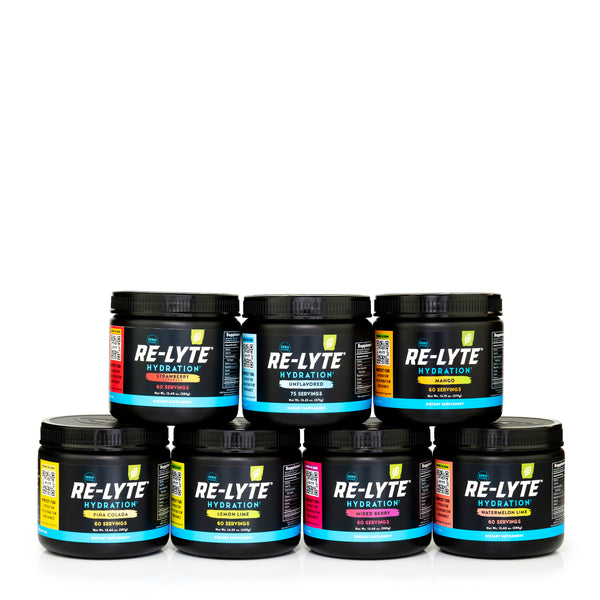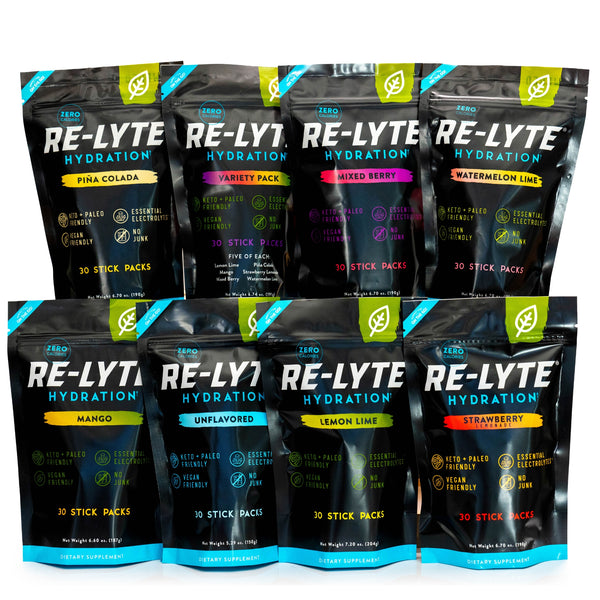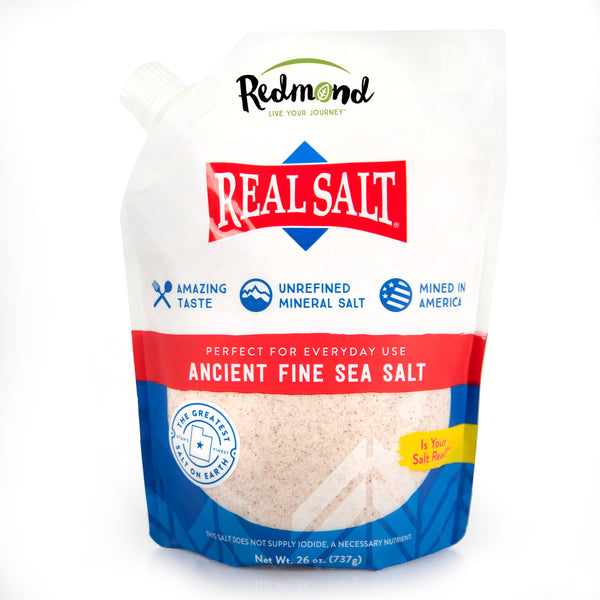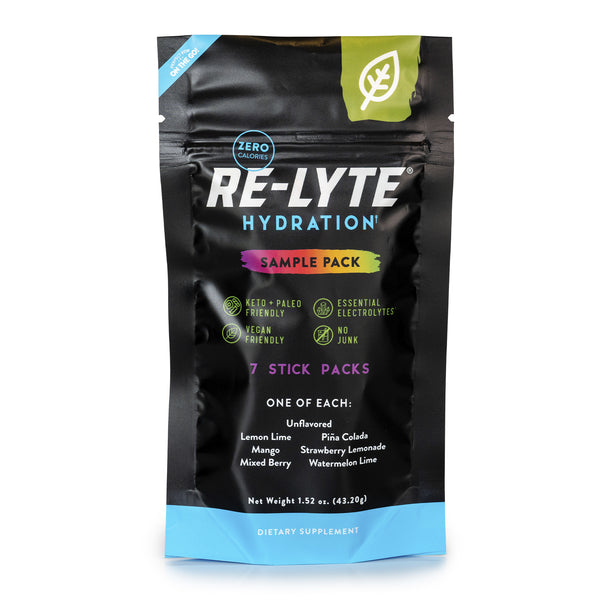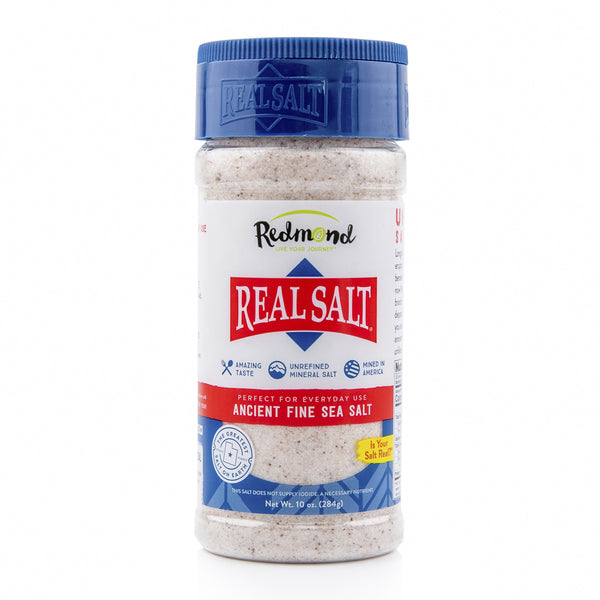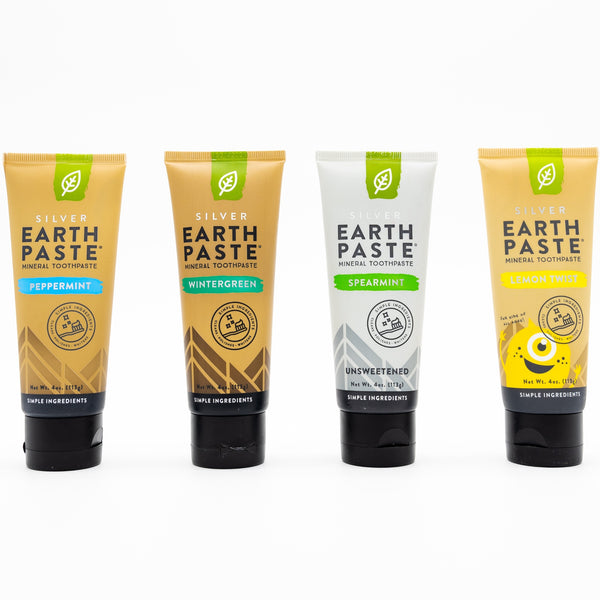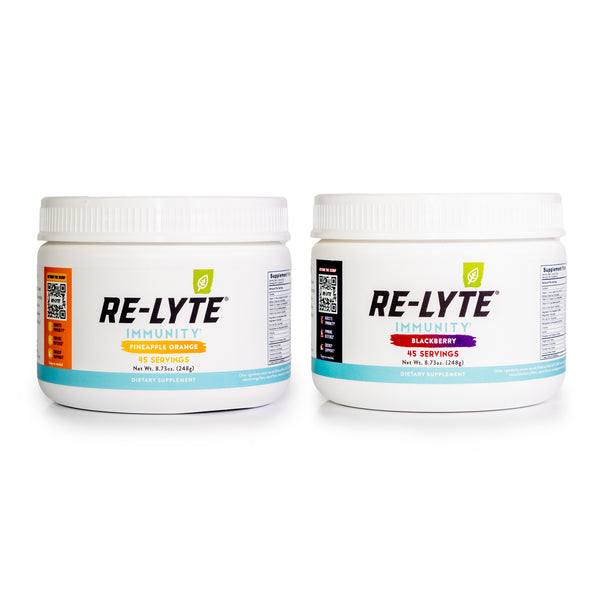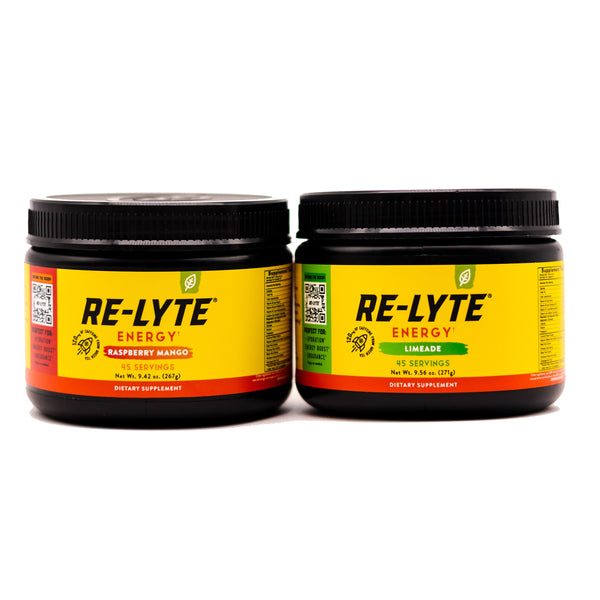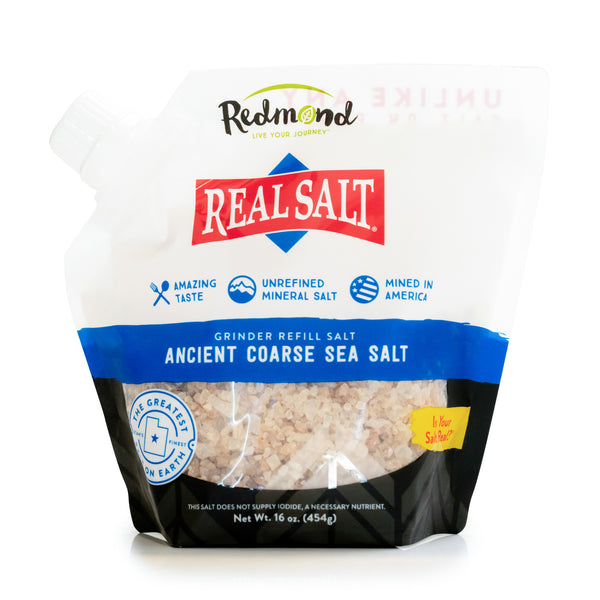From Beginner to Grillmaster: Chef Shawn Answers Your Top Grilling Questions
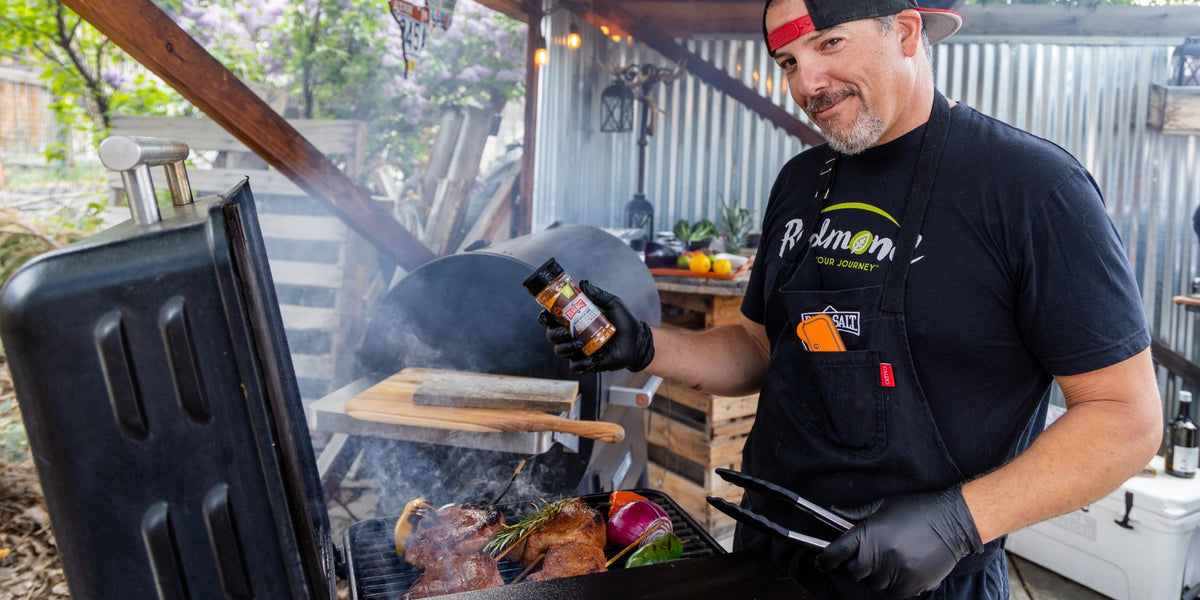
Grilling is all about good food, good company, and good times. But if you're new to the grilling game, you might feel more overwhelmed than excited every time you grab those grilling tongs. Don’t sweat it! Our favorite grillmaster, Chef Shawn, has you covered. We asked the Real Salt Chef to answer your burning grilling questions so you can rock those flames like a pro!
Is charcoal or gas grilling better?
There are a lot of opinions in the charcoal versus gas debate, but Chef Shawn has a clear favorite: charcoal. “I think charcoal is a better option because you get a lot more flavor out of it,” Shawn says.
There is a downside to charcoal, however, according to Shawn— it takes a lot more work and time, because you have to heat the charcoal, spread it all out, and then wait for the grill to get hot. “Gas heat is very clean and quick, but all you're doing is heating your food. You're not adding any extra flavor,” Shawn says. “Charcoal will add a smoky, bacon-like flavor.”
Take home message: Charcoal is a lot of effort, but the flavor is worth it if you have the time.

Where’s the best place to set up my grill?
Chef Shawn recommends making your job at the grill as easy as possible by keeping your grill close to your house (while staying safe, of course) and specifically, setting it up near the exterior door that’s closest to your kitchen. “If you have stuff going on in the kitchen, you don't want to be running back and forth, increasing your chances of spilling things and just wearing yourself out,” Shawn says.
Grills can melt siding and embers from the grill can cause things around it to catch fire, so to stay safe, make sure your grill is at least 10 feet away from your house and any other flammable objects or structures.
Take home message: About 10 feet away from your house (and anything else flammable) and near the exterior door that’s closest to your kitchen is a good place to set up your grill if you want to keep your grilling hobby safe and convenient.
How long should I preheat the grill?
Chef Shawn recommends preheating your grill for at least 10 to 15 minutes. This advice applies whether you’re using charcoal or gas. In the case of charcoal, you’ll want to spread out the charcoal and then give it a good 10-15 minutes to heat up. You want your grill nice and hot because the heat is going to help your meat or veggies release flavor.
The good news is a lot of grills have a digital temperature thermometer on the lid. You want that thermometer to hit 400 degrees Fahrenheit before you put any food on the grill (and potentially hotter depending on what you’re making).
If your grill doesn’t have a thermometer, you can always buy one. It will save you a lot of second-guessing about whether your grill is hot enough (especially if you’re new to grilling).
Take home message: Make sure to preheat your grill for at least 10 to 15 minutes and, if you have a thermometer, make sure it reaches at least 400 degrees Fahrenheit before cooking.
Do I need special grilling utensils or tools?
Chef Shawn recommends newbie grillers get themselves a good set of metal (not plastic) tongs, a big metal spatula, an instant-read thermometer to check the temperature of the meat (you can also get a thermometer to check the temperature of your grill as mentioned above if you don’t have one…we like ThermoWorks for both), and a grill brush for cleaning the grill. There are so many grilling gadgets out there that you can develop quite a collection if you want to, but those few are all you really need to get started.
Take home message: All you need to get started are metal tongs, a big metal spatula, an instant-read meat thermometer, and a grill brush.
What’s the easiest thing to grill?
If you’re new to grilling, start with two American classics: hamburgers and hot dogs. Chef Shawn says those are probably the easiest things to grill. If you’re vegetarian (or just not a big fan of burgers and dogs), don’t worry— veggies are also pretty easy. Chef Shawn says he’s a big fan of cooking whole peppers and onions on the grill. All you have to do is wash them, slice them in half, throw them on, and you get some fantastic flavor.
Take home message: Start with burgers, hot dogs, and veggies your first few times as grillmaster.

Should I use rubs and marinades when I grill?
All of us here at Redmond Life know that Chef Shawn is a master of rubs and marinades, and he thinks grilling beginners should take advantage of their flavorful benefits too. “I think any time you have the opportunity to add flavor to whatever you're cooking, you're gonna have a better product in the end.”
If you want to keep things super simple, you don’t have to even go as far as making a rub or marinade. Chef Shawn says you can just pre-season it with salt and pepper or one of our delicious seasoning blends.
According to Shawn, rubs, marinades, and pre-seasoning are especially important when you’re using a gas grill. “If you're grilling with gas, you're not getting that added flavor from charcoal, wood, or pellets. You need that extra flavor.”
Take home message: Using rubs and marinades or pre-seasoning is a great way to add extra flavor when you’re grilling, especially if you’re using a gas grill.

Should I use direct or indirect heat when I grill?
If you’re new to grilling, you may not be exactly sure what these terms mean, so here’s a quick overview. Direct heat means cooking your food directly over your heat source and indirect heat means cooking your food adjacent to your heat source.
Chef Shawn says which one is best depends on what you’re grilling. Foods you want to cook fast like steaks, burgers, and even veggies should be cooked using direct heat. Since direct heat provides the highest heat, it produces a nice sear or char that really elevates certain foods.
Bigger food items, foods you would normally cook longer, foods you have to be careful to cook all the way through (like whole chicken and roasts), and anything you want to have a fall-off-the-bone or shredded texture are examples of foods you’d want to cook with indirect heat.
According to Shawn, sometimes you’ll want to use both on the same food item. So, you may start something on indirect heat and then throw it on direct heat to give it a sear right before you serve it.
Take home message: Use direct heat for anything you want to cook quickly with a nice sear or char. Use indirect heat for anything that’s bigger or that you want to have a very tender texture.
How do I keep food from sticking?
Preheating is the best way to keep food from sticking to your grill, according to Shawn. However, cleaning your grill regularly is pretty important too because food tends to stick to a dirty grill. Using a little bit of oil in your marinades can also reduce sticking (just don’t use too much or you could cause flare-ups).
Take home message: Preheating, keeping your grill clean, and using marinades with a tiny bit of oil can all help your food stick less.
How can I tell when my food is done?
If you want to make it super easy to tell when your food is done, Chef Shawn says an instant-read thermometer is going to be your new best friend. (Like we mentioned above, our favorite brand of meat thermometers is ThermoWorks.) Make sure you measure the temperature in the thickest part of the meat (not the edge or thin part). Not sure what temperature each type of meat needs to be cooked to? This chart can help.
Take home message: Use an instant-read thermometer to measure the internal temperature of your food, so you know it’s ready to serve.

How often do I need to clean my grill?
Regular cleaning is essential to tasty, safe grilling, according to Chef Shawn. He recommends cleaning your grill grate after every use. You can use a grill brush or, if you don’t have one handy, you can use a big ball of aluminum foil to scrape the grates. (Just make sure the ball is big enough that your fingers don’t touch the grill and get burned.)
A lot of grills also have grease catches that catch all the drippings. You want to make sure to empty that every time you grill as well, because you never really know how much grease is falling in there (it varies a lot depending on what you're cooking). Cleaning the grease catch frequently is a great way to prevent grease fires.
In addition to regular grate and grease catch cleaning, you’ll want to give your grill a deep clean every three months or so. The more buildup you allow to sit on your grill the more likely something will catch on fire. So sticking to a cleaning schedule will help keep you, your friends, your family, and your food safe!
Take home message: Use a grill brush to clean your grill grate and empty the grease catch after every use. Give your grill a good deep clean about every 3 months.




